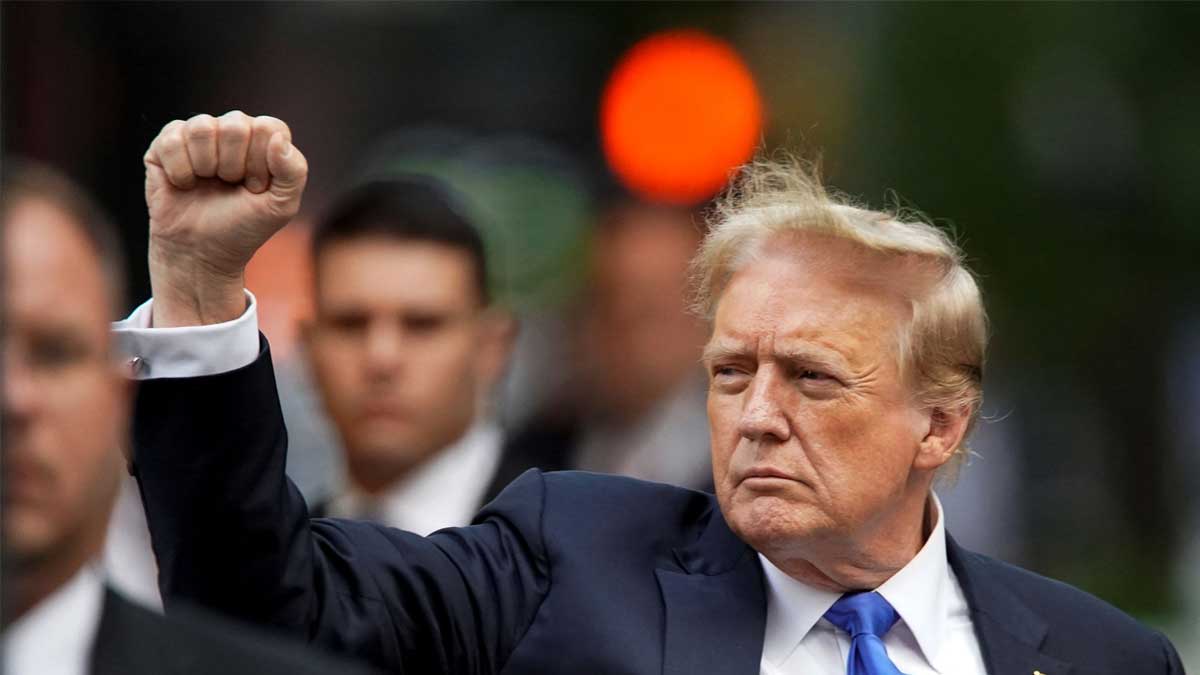- Home
- Billionaires
- Investing Newsletters
- 193CC 1000
- Article Layout 2
- Article Layout 3
- Article Layout 4
- Article Layout 5
- Article Layout 6
- Article Layout 7
- Article Layout 8
- Article Layout 9
- Article Layout 10
- Article Layout 11
- Article Layout 12
- Article Layout 13
- Article Layout 14
- Article Sidebar
- Post Format
- pages
- Archive Layouts
- Post Gallery
- Post Video Background
- Post Review
- Sponsored Post
- Leadership
- Business
- Money
- Small Business
- Innovation
- Shop
Recent Posts

On Monday, U.S. District Judge Aileen Cannon issued a ruling dismissing the federal charges against former President Donald Trump in a case involving alleged mishandling of White House documents. The dismissal was based on Cannon’s finding that the appointment of Special Counsel Jack Smith was unconstitutional. Cannon determined that Smith’s appointment by U.S. Attorney General Merrick Garland violated the Constitution’s Appointment Clause, which stipulates that certain high-level officials must be appointed by the President and confirmed by the Senate. Cannon sided with Trump’s argument that Smith, who was tasked with overseeing the investigation into Trump’s handling of classified materials, should have been appointed directly by the President rather than by the Attorney General. Additionally, Cannon found that Smith’s appointment breached the Constitution’s Appropriations Clause, as Congress had not allocated specific funds for the Special Counsel’s investigation, a requirement under federal law.
Trump faced 40 federal felony charges, including accusations that he improperly retained national security information by transporting classified White House documents to his Mar-a-Lago residence and obstructed the subsequent government investigation aimed at retrieving those documents. Cannon, who was appointed to the bench by Trump himself, ruled that Smith’s level of authority was so significant that only a Presidential appointment and Senate confirmation would be appropriate. This decision effectively closes the case involving these charges, though it does not impact other ongoing legal matters related to Trump, such as the federal case concerning his attempts to overturn the 2020 election results. The Justice Department has stated that it plans to appeal Cannon’s decision, arguing that the appointment of Special Counsels is within the legal purview of the Attorney General.
Trump celebrated the dismissal as a victory and a “first step” towards the dismissal of all the legal cases against him. He called for an end to what he perceives as the weaponization of the justice system against him. In response, the Department of Justice (DOJ) expressed its intent to appeal the ruling to the 11th Circuit Court of Appeals, and potentially to the Supreme Court if necessary. DOJ spokesperson Peter Carr criticized Cannon’s ruling as inconsistent with previous judicial interpretations that have upheld the Attorney General’s authority to appoint Special Counsels. Legal experts have suggested that the appeal process might include requesting a new judge for the case if the appeals court allows the case to proceed. There is also speculation that the DOJ might seek to reindict Trump through a U.S. Attorney in Florida to avoid the constitutional issues related to Smith’s appointment. However, significant delays are anticipated, and if Trump were to win the 2024 presidential election, he could appoint new DOJ officials who might drop the charges entirely, even if the 11th Circuit overturns Cannon’s ruling.
Cannon’s ruling comes in the wake of a similar argument raised by Supreme Court Justice Clarence Thomas. In a recent concurrence to the court’s decision granting Trump partial immunity from criminal prosecution in his federal election case, Thomas challenged the legality of Smith’s appointment. Thomas argued that if no law established the office of the Special Counsel, Smith’s prosecution could not proceed. This argument mirrored Cannon’s decision, which has led to uncertainty about how her ruling might affect Trump’s other legal challenges. The federal election case, set to resume on Friday, will address whether Trump can be charged for actions deemed “unofficial” during his presidency. U.S. District Judge Tanya Chutkan, who is overseeing this case, has previously been less accommodating towards Trump compared to Cannon, raising questions about how her court might handle any appeals related to Smith’s appointment.
Cannon’s decision is part of a broader pattern of recent setbacks for Trump in his multiple criminal cases. The Supreme Court’s ruling on immunity has cast doubt on the federal election case, and Trump’s sentencing in New York for falsifying business records has been postponed following his request to overturn the verdict based on the immunity ruling. Trump’s legal troubles in Georgia, related to his efforts to overturn the 2020 election, have also been delayed as an appeals court reviews whether Fulton County District Attorney Fani Willis should be disqualified due to a workplace relationship with a prosecutor. The appeals court is scheduled to hear this dispute in October. Trump was indicted in June 2023 after a search of Mar-a-Lago uncovered over 11,000 White House documents, including more than 300 classified ones. Prosecutors alleged that Trump knowingly concealed these documents and obstructed the investigation by moving documents to avoid their discovery by his own attorneys. Cannon’s handling of the case, including her controversial decision to appoint a special master to review the seized documents, had been subject to criticism before Trump’s formal indictment and has continued to draw scrutiny due to her subsequent rulings and delays in the trial.
Recent Posts
Categories
- 193 Countries Consortium Partner1
- 193cc Digital Assets2
- 5G1
- Aerospace & Defense48
- AI37
- Arts3
- Banking & Insurance11
- Big Data3
- Billionaires1,025
- Boats & Planes1
- Business332
- Careers13
- Cars & Bikes79
- CEO Network1
- CFO Network17
- CHRO Network1
- CIO Network1
- Cloud10
- CMO Network18
- Commercial Real Estate7
- Consultant1
- Consumer Tech194
- CxO1
- Cybersecurity73
- Dining1
- Diversity, Equity & Inclusion4
- Education7
- Energy8
- Enterprise Tech29
- Events11
- Fintech1
- Food & Drink2
- Franchises1
- Freelance1
- Future Of Work2
- Games149
- GIG1
- Healthcare79
- Hollywood & Entertainment203
- Houses1
- India’s 1000 Richest1
- Innovation46
- Investing2
- Investing Newsletters4
- Leadership65
- Lifestyle11
- Manufacturing1
- Markets20
- Media195
- Mobile phone1
- Money13
- Personal Finance2
- Policy569
- Real Estate1
- Research6
- Retail1
- Retirement1
- Small Business1
- SportsMoney42
- Style & Beauty1
- Success Income1
- Taxes2
- Travel10
- Uncategorized12
- Vices1
- Watches & Jewelry2
- world's billionaires993
- Worlds Richest Self-Made Women3
Related Articles
South Korea Plane Crash: A Tragic Loss and Global Mourning
The tragic plane crash at South Korea’s Muan International Airport on Sunday...
By 193cc Agency CouncilDecember 30, 2024H-1B Visa Debate Splits Trump Allies and Silicon Valley
The debate over H-1B visas has once again become a contentious issue,...
By 193cc Agency CouncilDecember 28, 2024Trump Moves $4B Stake in Truth Social Parent, Stock Drops 6%
Donald Trump recently transferred his 57% stake in Trump Media & Technology...
By 193cc Agency CouncilDecember 20, 2024House Rejects Trump-Backed Funding Bill, Shutdown Looms
The U.S. House of Representatives rejected a new government funding bill on...
By 193cc Agency CouncilDecember 20, 2024















Leave a comment